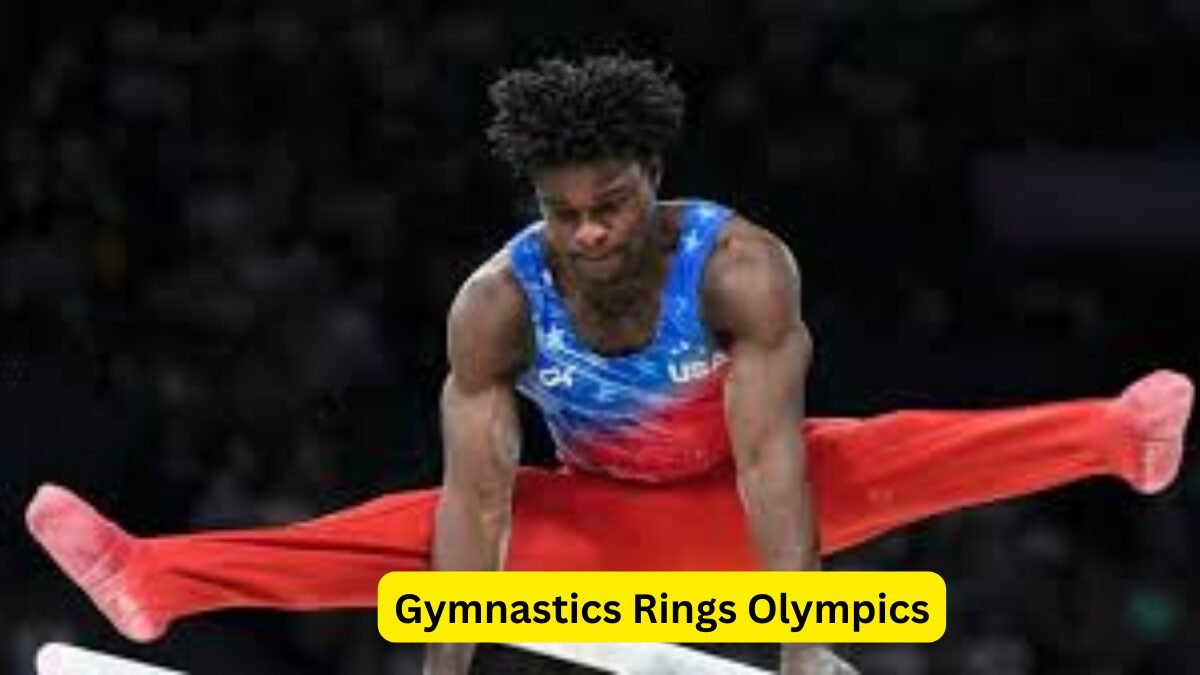Gymnastics Rings Olympics: Gymnastics rings have long been a staple in the world of gymnastics, representing a blend of strength, control, and artistic finesse. In the Olympics, the gymnastics rings event stands out for its intensity and the incredible display of athleticism it demands. This article delves into the rich history, the training, the athletes, and the cultural significance of gymnastics rings in the Olympics.
History of Gymnastics Rings in the Olympics
The gymnastics rings event has been a part of the Olympic Games since the early 20th century. Originating in the ancient gymnasiums of Greece, the sport has evolved significantly over the decades. The inclusion of rings in the modern Olympics has highlighted many memorable moments and legendary athletes, who have showcased extraordinary feats of strength and skill.
Understanding Gymnastics Rings
The rings apparatus consists of two wooden or metal rings suspended from a height. Gymnasts perform a series of movements, both static and dynamic, which demonstrate their control, strength, and precision. The scoring in this event is based on the difficulty of the moves, execution, and the overall composition of the routine.
Training for Gymnastics Rings
Training for gymnastics rings requires a combination of physical strength, flexibility, and mental fortitude. Gymnasts typically undergo rigorous training regimens that include strength conditioning, technique refinement, and psychological preparation to handle the pressures of competition.
Famous Olympic Gymnasts in Rings
Over the years, numerous gymnasts have left their mark on the gymnastics rings event. Legendary figures like Yuri Chechi, known as the “Lord of the Rings,” and modern champions like Eleftherios Petrounias have set high standards with their performances, inspiring future generations of athletes.
Techniques and Skills
Gymnastics rings routines comprise various skills, from basic holds and swings to advanced techniques like the Iron Cross and Maltese Cross. Each move requires a unique combination of strength and balance, making it one of the most challenging events in gymnastics.
Rules and Regulations
The International Gymnastics Federation (FIG) sets the rules for the rings event, outlining the competition format, scoring system, and penalties. Gymnasts must adhere to these guidelines to achieve high scores and avoid deductions.
Challenges and Risks
Gymnastics rings are not without their risks. Common injuries include shoulder strains and muscle tears. Athletes and coaches implement preventive measures and focus on proper technique to minimize the risk of injury and ensure peak performance.
Women in Gymnastics Rings
Historically, the rings event has been dominated by male gymnasts, with female gymnasts traditionally competing in different apparatuses. However, there is a growing interest in integrating rings into women’s gymnastics, reflecting broader trends towards gender equality in sports.
Gymnastics Rings Equipment
The quality and maintenance of gymnastics rings are crucial for safe and effective training and competition. Different types of rings, from wooden to synthetic materials, are used, and regular checks are essential to ensure their integrity and safety.
Role of Coaches
Coaches play a vital role in the development of gymnasts, offering technical guidance, motivational support, and strategic planning. The coach-athlete relationship is central to the success of gymnasts in the rings event, with many top athletes attributing their achievements to their coaches’ expertise.
Gymnastics Rings in Modern Olympics
Recent Olympic competitions have seen a surge in the popularity of gymnastics rings, with new talents emerging and pushing the boundaries of what is possible. The future looks bright for this event, with continuous advancements in training techniques and equipment.
Impact of Gymnastics Rings on Athletes’ Careers
Success in the rings event can propel gymnasts to new heights in their careers, opening up opportunities for endorsements, coaching roles, and media appearances. The discipline and skills developed through rings training also translate well into various professional and personal endeavors post-competition.
Cultural Significance
Gymnastics rings have transcended the realm of sports, influencing popular culture and being depicted in various media forms. Their representation underscores the universal admiration for the strength, grace, and dedication required to excel in this demanding event.
Conclusion
The gymnastics rings event in the Olympics is a true testament to human physical potential and artistic expression. As we look to the future, the evolution of this sport promises to continue captivating audiences and inspiring athletes worldwide.
In this blog, we have provided detailed information on Gymnastics Rings Olympics. We appreciate you taking the time to read this post about Gymnastics Rings Olympics in our blog! If you find this information useful, please share this blog with your friends and family so that they can also know about Gymnastics Rings Olympics. Visit our website homepage weblog365.in to read more interesting and informative blogs and stay updated.

My name is Yogesh Pandey, and I hail from Lucknow, India. I work in digital marketing. I have been blogging since 2023. I write about Technology, Entertainment, Automobile, and Lifestyle providing insights to help others find quality products. I am excited to have the opportunity to collaborate with weblog365.in now. You can reach out to me via email at weblog365.in@gmail.com. Let’s connect! 🙏

